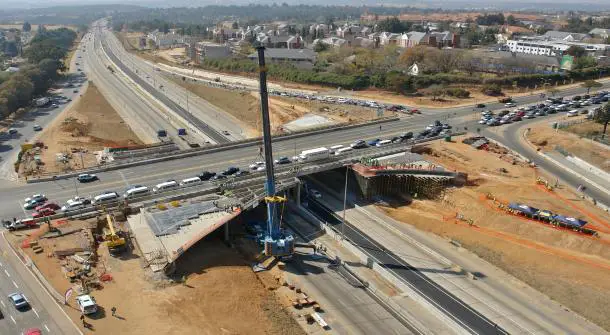Africa’s Infrastructure spending dropped in 2016 as compared to 2015, Deloitte 2016 African construction trends report reveals.
In 2016, 286 projects valued at US$50mn and more were being constructed across Africa, a drop from 301 recorded in 2015. The decline in overall value of capital was $51bn down from $375bn that was recorded in 2015 to a total of 324bn in 2016.
The report, that was released recently, shows there were 109 projects valued at $140bn in Southern Africa in 2015. In 2016, the project numbers dropped to 85 valued at $93bn.
“Africa has seen a downturn in both the number and value of projects included this year, in contrast to previous years,” said Jean-Pierre Labuschagne, Deloitte Africa infrastructure and capital projects leader.
“Global economic headwinds, low growth and lower commodity prices have all contributed to this,” he said.
Deloitte said there was divided focus on capital project development and infrastructure.
Also read: Kenya banks on sell of 15-year bond to boost infrastructure
Some of the projects included roads, schools human settlements and associated water, sewerage, electricity and health infrastructure, as opposed to just large construction projects such as dam, energy, ports, mines and oil and gas facilities.
The report pointed out gross fixed capital formation on a regional and continental level, and in relation to data collected over the last four years.
Going per regions, Western Africa recorded 92 projects — the largest number valued at US$120bn. South Africa recorded the highest number of projects at 41 for a single country, followed by Nigeria with 38.
“Several large mining projects on the continent have been suspended,” Labuschagne said. These included three iron-ore projects worth a total of $30bn.
Meanwhile, a drop in prices of oil had led to countries like Nigeria and Angola, scrambling for foreign currency. This situation has led to Angola putting on hold the building of the $8bn Lobito oil refinery.
This year’s report mainly focused on the water sector.
There was little investment in the water sector on the continent, Labuschagne said. Water costs and human rights issues plagued the sector, as well as related food and energy security concerns.
“It does not have great returns for the private sector, and is quite politically charged,” he said.
“We feel this is especially relevant, as the need for investment in this sector is far outstripping the actual investment and is a growing cause for concern in the light of the growth of megacities on the continent and the political and social pressure this will potentially place on governments.”

Leave a Reply